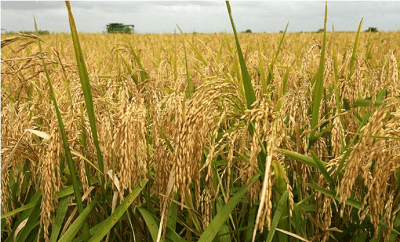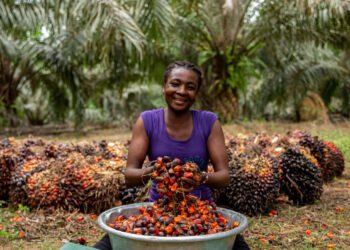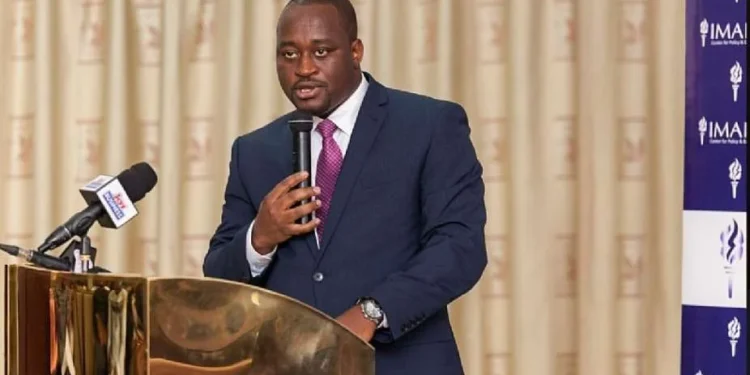The Institute for Fiscal Studies (IFS) has unveiled proposals aimed at transforming Ghana’s rice industry into a globally competitive export sector.
At the presentation of its latest study, “Increasing Importation of Rice in Ghana: Can the Country Transform Its Fortunes in the Rice Sector?”, held in Accra, the IFS recommended the establishment of a Rice Development Board to coordinate all government and private sector initiatives across the rice value chain.
According to the IFS, the new board would serve as the central authority for policy implementation, resource allocation, and investment attraction in Ghana’s rice sector. The goal is to address longstanding inefficiencies that have hindered local production, increased import dependency, and constrained the nation’s potential to become self-sufficient in rice production.
Dr. Said Boakye, Senior Research Fellow and Acting Executive Director of IFS, presented key findings from the study, revealing that Ghana has the natural capacity to compete with global rice powerhouses such as Vietnam and Thailand.
“Ghana has all it takes for a successful rice sector — abundant labour, fertile land, and favourable climatic conditions. With improved yields and proper management, the country can produce up to 35.4 million metric tons of paddy rice annually.”
Dr. Said Boakye
He added that if Ghana had produced just 7.4 million metric tons of milled rice in 2022, it could have exported more than 6 million metric tons, placing it on par with Vietnam’s export performance for the same year. This, he stressed, underscores the untapped potential of Ghana’s agricultural sector and the urgent need for structural reforms to unlock it.
The IFS study paints a sobering picture of the country’s growing dependence on imported rice despite numerous government initiatives. Rising imports have worsened Ghana’s balance of payments, undermined food security, and reduced incentives for local farmers to expand production.
Why a Rice Development Board Is Necessary
The proposed Rice Development Board, according to the IFS, would act as the central body overseeing all aspects of rice development in Ghana from seed distribution and irrigation management to processing, marketing, and export promotion.
Dr. Boakye emphasized that the fragmented nature of rice sector interventions has led to duplication, inefficiencies, and limited impact. The board, therefore, would coordinate efforts among ministries, development partners, and private investors, ensuring that all stakeholders work toward a unified national rice strategy.
He pointed to success stories from Asia, noting that countries like Vietnam and Thailand built their thriving rice industries through similar institutional frameworks that ensured consistent policy direction and long-term investment in research, irrigation, and mechanization.
“Ghana must learn from these models,” Dr. Boakye stressed. “With the right institutional support, we can not only feed ourselves but also export surplus rice to neighbouring countries and beyond.”
Buffer Stock CEO Backs IFS Proposal, Laments Funding Constraints
Adding his voice to the discussion, Mr. George Abradu-Otoo, Chief Executive Officer of the National Food Buffer Stock Company (NAFCO), endorsed the IFS proposal, describing it as “timely and transformative.” He expressed strong support for the creation of a dedicated Rice Development Board, emphasizing that such an entity could help streamline operations and ensure that local farmers receive the support they need.
However, Mr. Abradu-Otoo lamented the chronic underfunding of local rice purchasing and storage programs. He revealed that NAFCO received only GHS100 million out of a GHS700 million budget request meant to buy excess rice from farmers in 2024. This, he said, limited the company’s capacity to stabilize farm-gate prices and prevent post-harvest losses.
“The funding gap is one of our biggest challenges,” he noted. “We need greater investment in local rice storage, purchasing, and processing facilities to sustain farmers’ confidence and ensure the viability of the local rice market.”
Boosting Food Security and Reducing Import Dependency
Ghana’s rice import bill has soared over the past decade, with annual imports estimated at over US$1 billion. This not only drains foreign exchange reserves but also weakens the local agricultural base. The IFS argues that a well-structured Rice Development Board could reverse this trend by channeling resources toward productivity-enhancing measures such as: Providing certified seeds and fertilizers to farmers; Expanding irrigation infrastructure; Supporting mechanized farming and post-harvest technologies; Promoting local rice branding and market access.
Such coordinated interventions, the Institute believes, would make Ghana’s rice industry globally competitive and significantly reduce import dependence.
The IFS study forms part of its broader policy research on food security and fiscal sustainability in Ghana, highlighting how agricultural self-sufficiency can support macroeconomic stability.
The call for a Rice Development Board has since gained traction among key stakeholders, with many describing it as a necessary step toward achieving Ghana’s long-standing vision of rice self-sufficiency.
READ ALSO: Services Sector Dominates Ghana’s 4.5% Economic Growth Amid Industrial Slowdown























